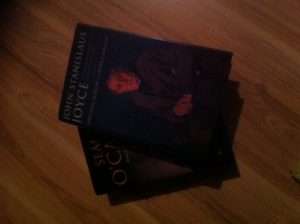No more books
It is sad that we hardly use books at school. Students are mostly educated on a diet of PowerPoint slides and photocopied handouts; opening books and reading them seems to have become a practice of former times. Even the library has been designated the “learning resource centre,” as if admitting it was a repository of books was somehow no longer appropriate.
Generations will grow up with no understanding of how much books meant to their forebears, with no concept of how books changed the world, with no appreciation of how democratic societies owed their existence to ideas written and published in books.
It would sound strange to many now that there were mechanics’ institutes where working men might go to the reading room and that the Workers’ Educational Association was a major factor in the improvement of the lives of countless people. Will future generations completely miss the experience of having books that were important influences in their lives, of having books that were precious to them? Will the idea that a book could express something of its owner be lost forever?
It was reading the Catalan writer Carlos Ruiz Zafón’s novel Shadow of the Wind with its “Cemetery of Forgotten Books” that reminded me that that there are books that can be somehow part of their owner, that there is something deeply sad in a much-loved book being separated from the person who for years had cherished it.
One summer in Dublin, more than a decade ago, I found a prayer book, that had been privately bound and annotated, it was amongst a pile of rubbish in a church sale and might easily have been consigned to the recycling box. I opened it and there was a sense of delight in recognizing the name of the owner on the flyleaf, W.E. Milligan. He had been a predecessor in the parish on the Co Down coast where I spent seven years as rector. I had arrived in 1989, he had retired some sixteen years previously in 1973 and had lived into his nineties. I found the Northern Ireland address of his daughter, who was delighted at receiving the book through the post. In her letter, she had spoken of how much of himself her father had put into this book. Each printed sheet had been interleaved with a blank sheet on which he had written notes in his always immaculate hand. The book was truly part of himself.
No PowerPoint or handout or web page or app will ever have that capacity, nothing electronic can ever possess that power to be part of us. It will be sad when there are no more books.



Comments
No more books — No Comments
HTML tags allowed in your comment: <a href="" title=""> <abbr title=""> <acronym title=""> <b> <blockquote cite=""> <cite> <code> <del datetime=""> <em> <i> <q cite=""> <s> <strike> <strong>